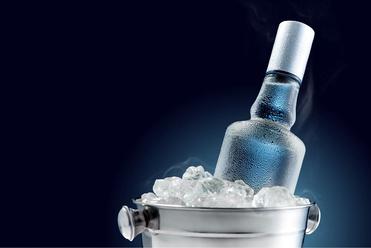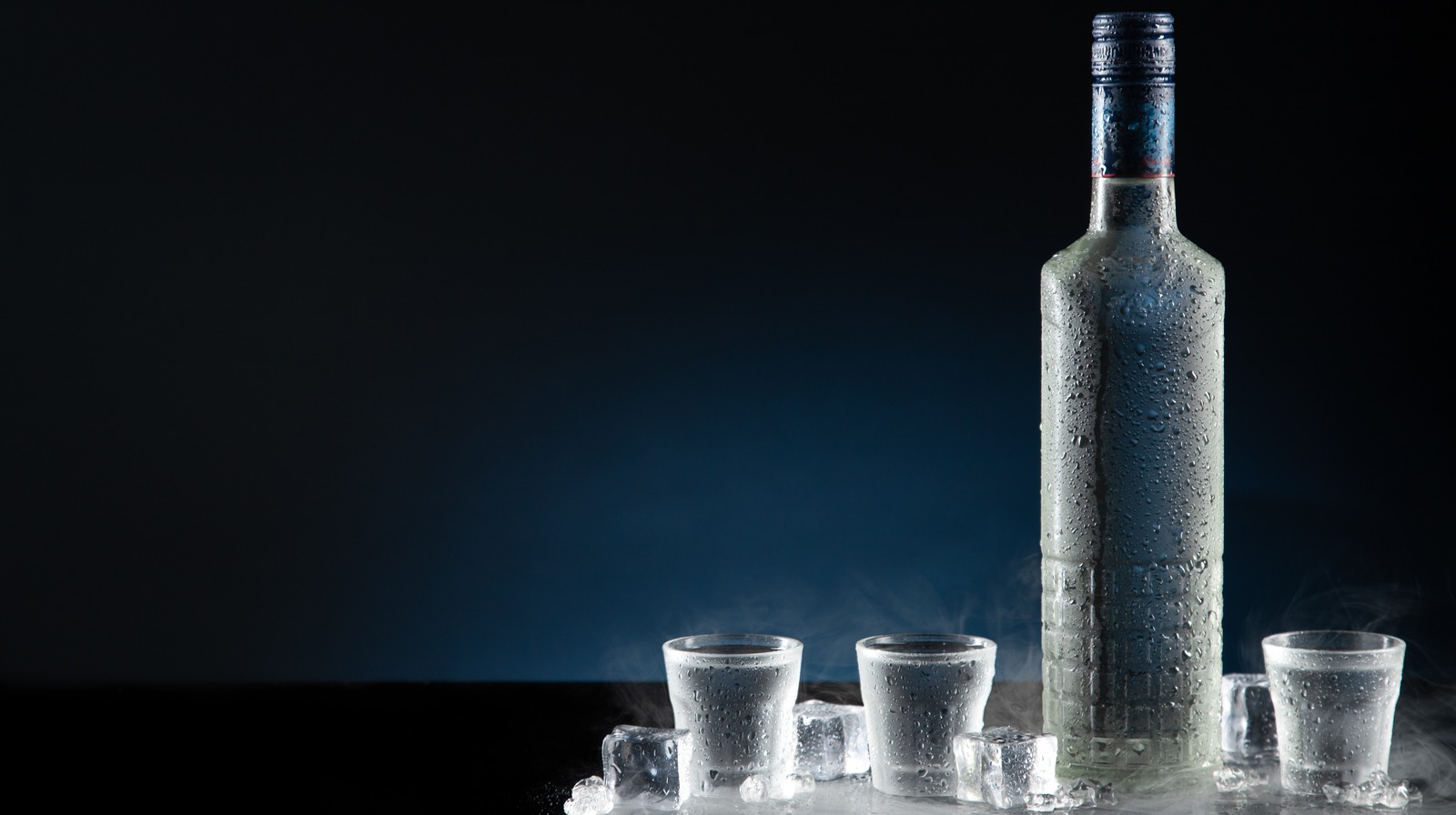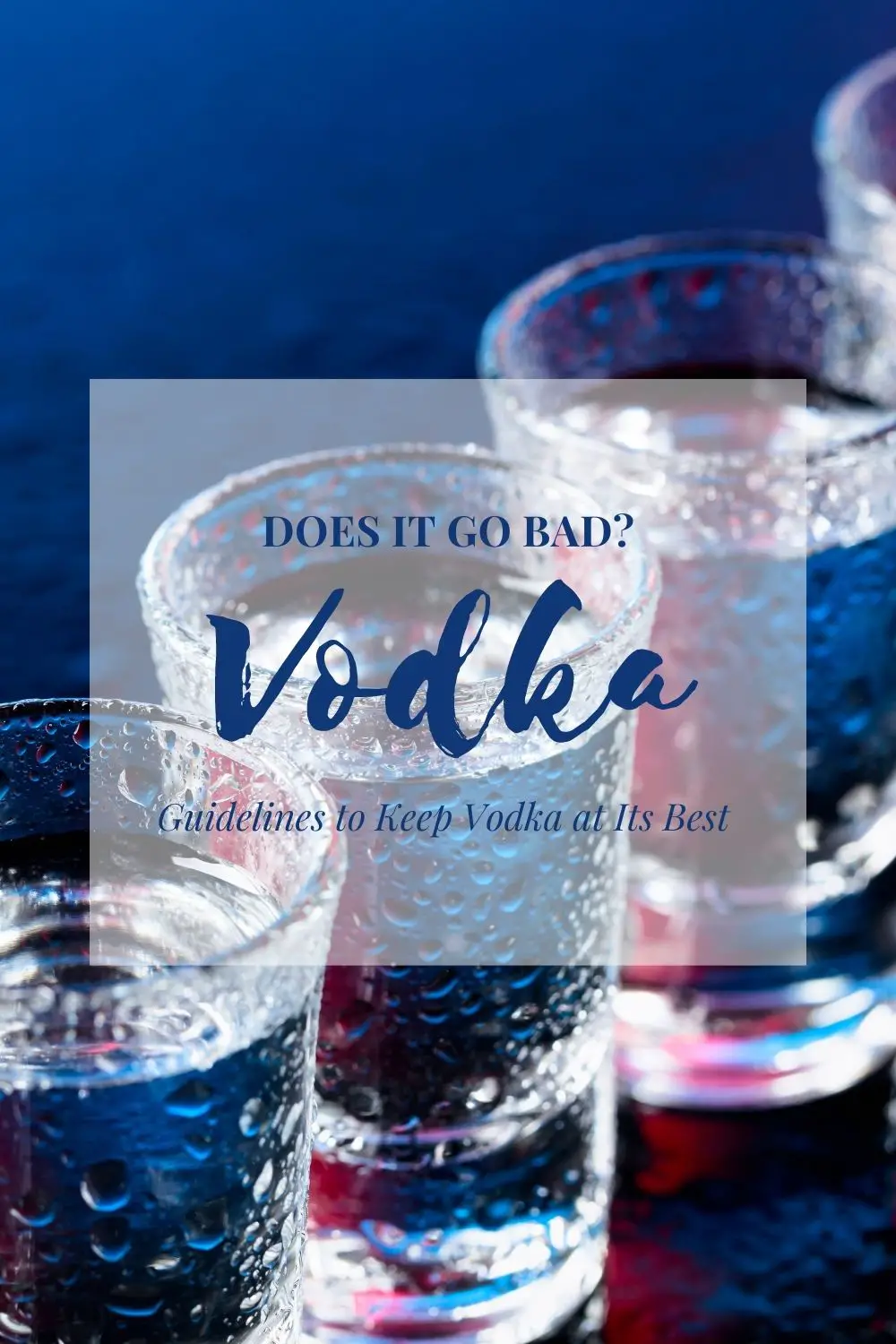
Introduction
Why Understanding The Shelf Life And Spoilage Of Vodka Is Important
Understanding the shelf life and spoilage of vodka is important to ensure that the vodka you consume is safe and enjoyable. While vodka has a long shelf life due to its high alcohol content, it can still go bad under certain circumstances. Spoilage can occur when the vodka becomes contaminated or tainted, leading to changes in taste, odor, or appearance. On the other hand, expiration refers to when the vodka is no longer safe to consume due to the growth of harmful bacteria. By being aware of the signs of spoilage and practicing proper vodka storage, you can avoid consuming spoiled vodka and protect your health.
The Factors That Affect The Shelf Life Of Vodka
The shelf life of vodka can be influenced by several factors. It’s important to consider these factors when storing vodka to ensure its longevity:
- Quality of ingredients: The quality of the ingredients used in the production of vodka can affect its shelf life. High-quality ingredients and a well-controlled production process can result in a longer shelf life.
- Alcohol content: Vodka typically has a high alcohol content, which acts as a natural preservative. The higher the alcohol content, the longer the shelf life of the vodka.
- Storage conditions: Proper storage conditions are essential for maintaining the quality and shelf life of vodka. Vodka should be stored in a cool, dark place, away from direct sunlight and heat sources. Exposure to light and heat can accelerate the degradation of the vodka and reduce its shelf life.
- Sealed containers: Vodka should be stored in tightly sealed containers to prevent oxidation and the entry of contaminants. Properly sealed containers can help extend the shelf life of vodka.
- Contamination: Contamination can occur when foreign substances, such as dust or dirt, come into contact with the vodka. This can lead to spoilage and affect the taste and quality of the vodka.
By considering these factors and implementing proper storage practices, you can extend the shelf life of your vodka and ensure that it remains fresh and safe for consumption.
Does Vodka Go Bad?
Understanding The Concept Of Going Bad For Vodka
When it comes to vodka, it technically doesn’t go bad in the same way that food does. However, its quality can deteriorate over time, which can negatively impact the taste and overall enjoyment of the drink. Understanding the factors that contribute to the degradation of vodka can help ensure that you’re consuming a high-quality product.
Exploring The Quality Changes In Vodka Over Time
Several factors can affect the shelf life and quality of vodka. Here are some of the key considerations:
- Quality of ingredients: The ingredients used in the production of vodka can vary in quality. Higher-quality ingredients and a well-controlled production process can result in a vodka that maintains its integrity for longer periods.
- Alcohol content: Vodka typically has a high alcohol content, which acts as a natural preservative. The higher the alcohol content, the longer the shelf life of the vodka.
- Storage conditions: Proper storage conditions are crucial for maintaining the quality of vodka. Storing vodka in a cool, dark place, away from direct sunlight and heat sources, helps prevent degradation and extends its shelf life.
- Sealed containers: Vodka should be stored in tightly sealed containers to prevent oxidation and the entry of contaminants. Proper sealing can help preserve the vodka’s quality.
- Contamination: Exposure to foreign substances, such as dust or dirt, can lead to spoilage and affect the taste of the vodka. Keeping vodka away from potential contaminants is essential for maintaining its quality.
By considering these factors and practicing proper storage techniques, you can ensure that your vodka maintains its freshness and quality over time.
Proper Storage Of Vodka
The Role Of Proper Storage In Maintaining Vodka’s Quality
Vodka, like any other alcohol, requires proper storage to maintain its quality over time. While vodka doesn’t technically go bad, its taste and overall enjoyment can be negatively affected if not stored correctly. Understanding the key factors that contribute to the degradation of vodka can help ensure that you’re consuming a high-quality product.
Tips For Storing Vodka In A Cool, Dark, And Dry Environment
Here are some tips to effectively store your vodka and maintain its freshness:
- Avoid exposure to light and heat: Vodka is best stored away from direct sunlight and heat sources, as they can accelerate the breakdown of the alcohol and lead to flavor changes. Choose a cool and dark area for long-term storage.
- Seal the bottle tightly: Properly sealing the vodka bottle helps prevent oxidation and the entry of contaminants, maintaining its quality for longer periods.
- Store in a dry place: Moisture can negatively affect the quality of vodka. Opt for a location that is dry to prevent any unwanted changes in taste or texture.
- Avoid temperature fluctuations: Fluctuations in temperature can cause the expansion and contraction of the vodka, potentially leading to leakage or spoilage. Try to store vodka in an area with a consistently cool temperature.
- Keep away from strong odors: Vodka is known for its neutral flavor and aroma. Storing it away from strong odors, such as spices or cleaning products, helps preserve its original taste.
By following these tips and practicing proper vodka storage, you can ensure that each sip of vodka is enjoyable, safe, and maintains its quality over time.

Signs Of Spoiled Vodka
Identifying Signs That Your Vodka Has Gone Bad
Although vodka doesn’t technically expire, there are some indicators to look out for that may suggest your vodka has spoiled:
Common Indicators Of Spoiled Vodka
| Signs of Spoiled Vodka | Explanation |
|---|---|
| Change in color or clarity | If your vodka appears cloudy, has sediment, or has changed color, it may be a sign of spoilage. |
| Strange or unpleasant odor | If your vodka has an off-putting aroma, such as a sour or musty smell, it is likely spoiled. |
| Off taste | If your vodka tastes different than usual, with a bitter or unpleasant flavor, it may have gone bad. |
| Presence of mold or foreign particles | If you notice any mold growth or foreign particles floating in your vodka, it is unsafe to consume. |
| Expired or damaged packaging | If the bottle is damaged, cracked, or past its expiration date, it’s best to err on the side of caution and not consume the vodka. |
If you observe any of these signs, it is recommended to discard the vodka rather than risk consuming a spoiled product. It’s important to prioritize your safety and enjoyment when it comes to consuming spirits.
Unopened Bottles Of Vodka
How Long Can Unopened Bottles Of Pure Vodka Last?
Unopened bottles of pure vodka have an exceptionally long shelf life. In fact, if stored correctly, unopened vodka can last indefinitely. This is because most vodkas have very few additives, allowing them to maintain their quality for a prolonged period. As long as the bottle remains unopened and is stored in a cool, dark place, unopened vodka can retain its clear appearance and crisp taste for an extended period without going bad.
The Impact Of Storage Conditions On The Shelf Life Of Unopened Vodka Bottles
The durability of unopened vodka can be greatly influenced by the storage conditions. Here are some key factors to consider:
- Temperature: Vodka should be stored in a cool environment, ideally between 40-70 degrees Fahrenheit (4-21 degrees Celsius). Extreme temperatures, such as excessive heat or freezing cold, can negatively affect the quality of the vodka and potentially lead to spoilage.
- Light exposure: Vodka bottles should be stored away from direct sunlight or any other sources of UV radiation. Light exposure can cause chemical reactions in the vodka, resulting in off flavors and deterioration.
- Air exposure: It’s best to keep the vodka bottle tightly sealed to prevent unnecessary exposure to air. Oxidation can occur when vodka comes into contact with air, leading to changes in taste and quality over time.
By ensuring optimal storage conditions, unopened bottles of vodka can remain in pristine condition for an indefinite period. It’s important to keep in mind that while unopened vodka may not expire, it’s still essential to check for signs of spoilage before consuming.
Signs Of Spoiled Vodka
Identifying Signs That Unopened Vodka Has Gone Bad
Although unopened vodka doesn’t technically expire, there are some indicators to look out for that may suggest your vodka has spoiled:
- Change in color or clarity: If the vodka appears cloudy, has sediment, or has changed color, it may be a sign of spoilage.
- Strange or unpleasant odor: An off-putting aroma, such as a sour or musty smell, is an indication of spoiled vodka.
- Off taste: If the vodka tastes different than usual, with a bitter or unpleasant flavor, it may have gone bad.
- Presence of mold or foreign particles: Any growth of mold or foreign particles floating in the vodka indicates it is unsafe to consume.
- Expired or damaged packaging: If the bottle is damaged, cracked, or past its expiration date, it’s best not to consume the vodka.
If any of these signs are observed, it is recommended to discard the vodka rather than risk consuming a spoiled product. Prioritizing safety and enjoyment when consuming spirits is of utmost importance.
Factors Influencing Shelf Life
The Role Of Temperature, Light, And Exposure To Air In Vodka Spoilage
Unopened bottles of pure vodka have a remarkably long shelf life, thanks to their high alcohol content. However, several factors can impact the quality and safety of vodka over time.
How These Factors Can Affect The Quality Of Vodka Over Time
Temperature: Proper storage temperature is crucial to maintaining the quality of vodka. Extreme temperatures, such as excessive heat or freezing cold, can negatively affect the taste and overall quality of the vodka. It is recommended to store vodka in a cool environment, ideally between 40-70 degrees Fahrenheit (4-21 degrees Celsius).
Light exposure: Vodka bottles should be kept away from direct sunlight or any other sources of UV radiation. Exposure to light can cause chemical reactions in the vodka, resulting in off flavors and a decrease in quality over time.
Exposure to air: Keeping the vodka bottle tightly sealed is essential to prevent unnecessary exposure to air. When vodka comes into contact with air, oxidation can occur, leading to changes in taste and quality over time.
It is important to keep in mind that while unopened vodka does not technically expire, it is still crucial to check for signs of spoilage before consuming. Signs of spoiled vodka include a change in color or clarity, strange or unpleasant odor, off taste, presence of mold or foreign particles, and expired or damaged packaging. If any of these signs are observed, it is recommended to discard the vodka rather than risk consuming a spoiled product.
By understanding and considering these factors, individuals can enjoy vodka responsibly while ensuring their safety and enjoyment.
Extending The Shelf Life Of Vodka
Tips And Tricks To Prolong The Shelf Life Of Vodka
To ensure that your vodka remains enjoyable and safe for an extended period, it’s essential to follow these tips:
- Store vodka in a cool environment: Extreme temperatures can negatively impact the taste and quality of vodka. Aim to store your vodka between 40-70 degrees Fahrenheit (4-21 degrees Celsius).
- Avoid exposure to light: Direct sunlight and UV radiation can cause chemical reactions in vodka, leading to off flavors. Keep your vodka bottles away from light sources to preserve their quality.
- Keep the bottle tightly sealed: Prevent unnecessary air exposure by tightly sealing the vodka bottle after each use. Oxidation can occur when vodka comes into contact with air, affecting its taste and quality.
- Handle with care: Protect your vodka from physical damage and excessive shaking, as this can disrupt its composition and lead to a decrease in quality over time.
Preserving The Quality And Taste Of Your Vodka
To maintain the optimal taste and quality of your vodka throughout its shelf life, keep the following factors in mind:
- Check for signs of spoilage: Before consuming vodka, examine it for any signs of spoilage. These may include changes in color or clarity, strange odors, off taste, presence of mold or foreign particles, and expired or damaged packaging. If any of these signs are observed, discard the vodka.
- Practice proper storage: Store your vodka bottles in an upright position to minimize contact with the cork or cap. This helps maintain the integrity of the seal and prevent leakage or contamination.
- Avoid mixing with other liquids: Mixing vodka with other liquids can introduce bacteria and contaminants, potentially compromising its quality and safety. Keep your vodka pure and separate from other substances.
- Follow the serving suggestions: Different types of vodka may have specific serving recommendations. Adhering to these guidelines can enhance the overall drinking experience and ensure the intended flavors are enjoyed.
Following these tips and practicing proper vodka storage will help you extend the shelf life of your vodka and enjoy it safely. Remember to always use your senses and check for any signs of spoilage before consuming to ensure a pleasant and risk-free drinking experience.

Frequently Asked Questions
Common Queries About The Shelf Life And Spoilage Of Vodka
Providing Answers And Explanations Based On Factual Data
Extending The Shelf Life Of Vodka
Tips And Tricks To Prolong The Shelf Life Of Vodka
To ensure that vodka remains enjoyable and safe for an extended period, it is essential to follow these tips:
- Store vodka in a cool environment: Extreme temperatures can negatively impact the taste and quality of vodka. Aim to store your vodka between 40-70 degrees Fahrenheit (4-21 degrees Celsius).
- Avoid exposure to light: Direct sunlight and UV radiation can cause chemical reactions in vodka, leading to off flavors. Keep your vodka bottles away from light sources to preserve their quality.
- Keep the bottle tightly sealed: Prevent unnecessary air exposure by tightly sealing the vodka bottle after each use. Oxidation can occur when vodka comes into contact with air, affecting its taste and quality.
- Handle with care: Protect your vodka from physical damage and excessive shaking, as this can disrupt its composition and lead to a decrease in quality over time.
Preserving The Quality And Taste Of Vodka
To maintain the optimal taste and quality of vodka throughout its shelf life, keep the following factors in mind:
- Check for signs of spoilage: Before consuming vodka, examine it for any signs of spoilage. These may include changes in color or clarity, strange odors, off taste, presence of mold or foreign particles, and expired or damaged packaging. If any of these signs are observed, discard the vodka.
- Practice proper storage: Store your vodka bottles in an upright position to minimize contact with the cork or cap. This helps maintain the integrity of the seal and prevent leakage or contamination.
- Avoid mixing with other liquids: Mixing vodka with other liquids can introduce bacteria and contaminants, potentially compromising its quality and safety. Keep your vodka pure and separate from other substances.
- Follow the serving suggestions: Different types of vodka may have specific serving recommendations. Adhering to these guidelines can enhance the overall drinking experience and ensure the intended flavors are enjoyed.
Following these tips and practicing proper vodka storage will help extend the shelf life of vodka and allow it to be enjoyed safely. Remember to always use your senses and check for any signs of spoilage before consuming to ensure a pleasant and risk-free drinking experience.
Frequently Asked Questions
Common Queries About The Shelf Life And Spoilage Of Vodka
Providing Answers And Explanations Based On Factual Data
Extending The Shelf Life Of Vodka
Tips And Tricks To Prolong The Shelf Life Of Vodka
To ensure that vodka remains enjoyable and safe for an extended period, it is essential to follow these tips:
- Store vodka in a cool environment: Aim to store your vodka between 40-70 degrees Fahrenheit (4-21 degrees Celsius) to prevent the negative effects of extreme temperatures on taste and quality.
- Avoid exposure to light: Direct sunlight and UV radiation can cause chemical reactions in vodka, leading to off flavors. Keep your vodka bottles away from light sources to preserve their quality.
- Keep the bottle tightly sealed: Oxidation can occur when vodka comes into contact with air, affecting its taste and quality. Prevent unnecessary air exposure by tightly sealing the vodka bottle after each use.
- Handle with care: Protect your vodka from physical damage and excessive shaking, as this can disrupt its composition and lead to a decrease in quality over time.
Preserving The Quality And Taste Of Vodka
To maintain the optimal taste and quality of vodka throughout its shelf life, keep the following factors in mind:
- Check for signs of spoilage: Before consuming vodka, examine it for any signs of spoilage such as changes in color or clarity, strange odors, off taste, presence of mold or foreign particles, and expired or damaged packaging. If any of these signs are observed, discard the vodka.
- Practice proper storage: Store your vodka bottles in an upright position to minimize contact with the cork or cap. This helps maintain the integrity of the seal and prevent leakage or contamination.
- Avoid mixing with other liquids: Keep your vodka pure and separate from other substances to avoid introducing bacteria and contaminants that can compromise its quality and safety.
- Follow the serving suggestions: Adhering to the recommended serving suggestions for different types of vodka can enhance the drinking experience and ensure the intended flavors are enjoyed.
Following these tips and practicing proper vodka storage will help extend the shelf life of vodka and allow it to be enjoyed safely. Remember to always use your senses and check for any signs of spoilage before consuming to ensure a pleasant and risk-free drinking experience.
Conclusion
The Importance Of Proper Handling And Storage To Enjoy A Consistently Great Taste In Vodka
A Summary Of The Key Points Discussed In The Article
Summary: Proper storage conditions and handling are crucial for preserving the quality and taste of vodka. By storing vodka in a cool environment, avoiding exposure to light, keeping the bottle tightly sealed, and handling it with care, you can extend its shelf life and ensure an enjoyable drinking experience. Additionally, checking for signs of spoilage before consuming, following proper storage practices, avoiding mixing vodka with other liquids, and following serving suggestions can further enhance the quality of your vodka. By following these guidelines, you can confidently enjoy your vodka for an extended period while maintaining its taste and safety.
FAQ: Can Vodka Go Bad: Exploring the Shelf Life and Spoilage of Vodka
Have you ever wondered if vodka can go bad? Whether you’re a casual drinker or a passionate mixologist, it’s essential to understand the shelf life and spoilage of vodka. Here are some frequently asked questions to shed light on this topic:
1. Can vodka go bad?
While vodka doesn’t technically spoil or become unsafe to drink, it can deteriorate in quality over time. This degradation mainly affects the taste, aroma, and flavor profile of the spirit.
2. What is the shelf life of vodka?
Unopened bottles of vodka have an indefinite shelf life. As long as they are stored properly, in a cool and dark place away from direct sunlight and extreme temperatures, they can be enjoyed for years. However, it’s important to note that the flavor and overall quality may start to decline after a prolonged period.
3. How long does opened vodka last?
Once a bottle of vodka is opened, the oxidation process begins to take place. This process gradually impacts the taste and aroma of the spirit. In general, when stored correctly, an opened bottle of vodka can maintain its quality for about 1-2 years.
4. How can you tell if vodka has gone bad?
While vodka doesn’t spoil like perishable food, it can undergo significant changes that affect its characteristics. Signs that vodka may have gone bad include a dramatic loss of flavor, a noticeable change in aroma, or the appearance of sedimentation or particles in the liquid. If you notice any of these signs, it’s best to dispose of the vodka.
5. Can storing vodka in the freezer extend its shelf life?
Storing vodka in the freezer does not extend its shelf life. Vodka has a relatively low freezing point, around -17.8°C or 0°F, and the alcohol content keeps it from fully freezing. The main advantage of storing vodka in the freezer is that it chills the spirit before serving, offering a refreshing drinking experience.
6. Can flavored vodka go bad faster than regular vodka?
Flavored vodkas can have a slightly shorter shelf life than regular vodka due to the addition of natural or artificial flavorings. These added ingredients can break down over time, leading to a potential change in taste or aroma. It’s advisable to consume flavored vodka within a year or two of opening the bottle to enjoy its full flavor profile.
In conclusion, while vodka doesn’t spoil in the same way as perishable food, it can degrade over time, affecting its quality, taste, and aroma. To ensure the best drinking experience, store your vodka properly, consume it within a reasonable time frame, and be aware of any signs that indicate deterioration. Cheers!

Telegraph Liquor is a brand that was born from a passion for creating exceptional craft beers that bring people together in the spirit of friendship and good times. Our very first creation, the 12-ounce bottle, pours a pitch-black color, topped with a creamy tan-colored head that leaves a beautiful ringed lace as it settles, with a bit of stick on the glass. This carefully crafted beer is made to be shared with friends, embodying the essence of togetherness and camaraderie.The brewing process involves a blend of lambic beers brewed at 3 Fonteinen, with the addition of 30% whole fresh raspberries from the fabled Payottenland and 5% sour cherries. This unfiltered beer undergoes spontaneous refermentation in the bottle, ensuring a pure and authentic flavor experience. We take pride in using only natural ingredients, with no artificial colors or flavor enhancers added, staying true to the traditional brewing methods.